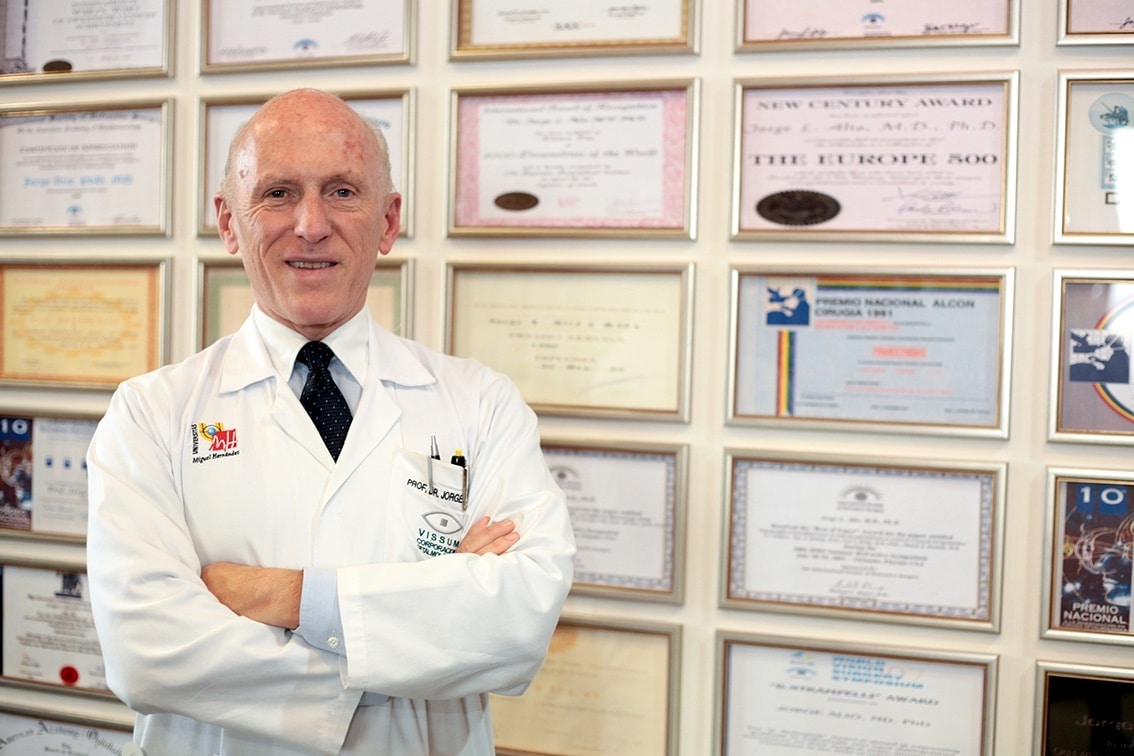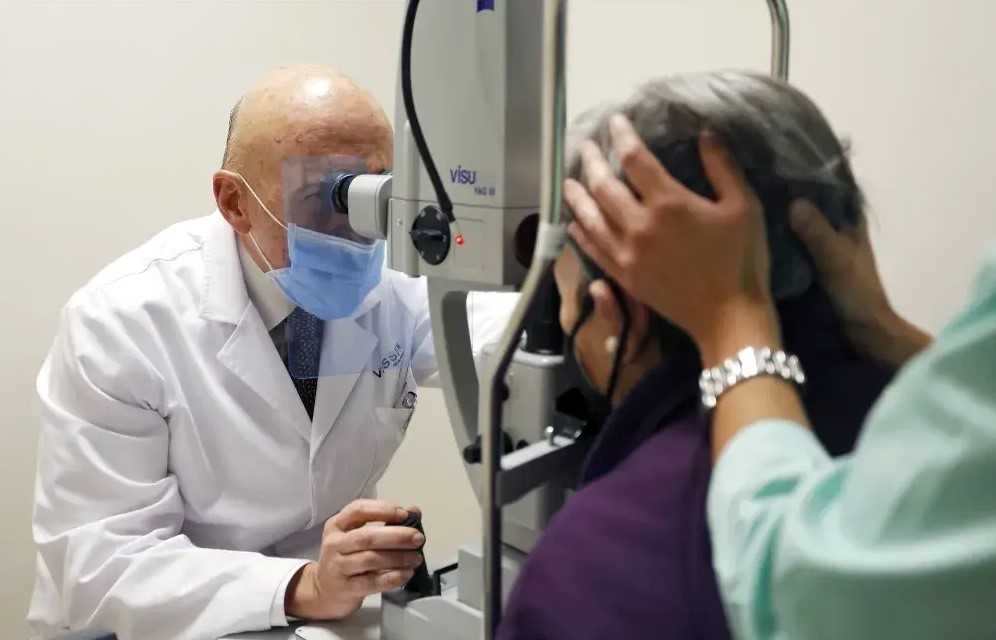“THE FIRST CAUSE OF VISUAL DEFICIT WORLDWIDE IS THE LACK OF ACCESS TO GLASSES”
On World Sight Day, which is celebrated on October 12, Dr. Alió also advocates ophthalmology to prevent blindness that affects more than 40 million people worldwide
Vision is the sense organ that provides the most information to human beings. More than 95% of the sensory stimuli that reach the brain do so through sight. So the loss of vision, on any scale, represents a very important decrease in the quality of life, education and vital development of people affected by vision problems.
It is not the same, however, for a patient to have poor vision as a newborn baby or later when he or she is an adult or in old age. Young totally blind people adapt very well and can develop a practically normal professional activity, career or social life, since they have compensatory mechanisms that are established from childhood to balance their sensorial system and with this their lives.
Very different is the elderly patient, who has diminished adaptation and neuro-adaptation capacities and therefore, these people, on becoming blind or with poor vision, undergo great suffering and are a burden for themselves, as well as for their families and society in general.
Therefore, it is essential to achieve prevention of those ailments that, while potentially causing irreparable visual defects, have a solution. This is where the prevention of visual anomalies plays a fundamental role, which we can structure at different levels depending on whether it is the child, the adult or the elderly person.
In children, it is essential to perform a medical ophthalmological examination around the age of 6, since visual anomalies can be detected, such as lazy eye (amblyopia), which still have the possibility of treatment, through early detection of ocular problems, such as refractive defects, allergies or congenital problems that have previously gone unnoticed with and which have excellent prognosis.
In adulthood, at the age of presbyopia, around 40-45 years, it is ideal to carry out a complete medical study to rule out increased intraocular pressure (glaucoma), degenerative problems in the retina, incipient or anomalies of the cornea or lens. Today we know that there are diseases such keratoconus, which is a deformity of the cornea, that affect many more patients than previously thought and that there is also treatment which, if carried out early, can prevent blindness and a cornea transplant.

The same occurs with glaucoma, which is one of the main causes of blindness in the Western world. Diabetics have to be especially careful with their retinal problems, since they can be treated when diagnosed early, but these continue to be one of the leading causes of blindness in the Western world.
In the elderly, the appearance of cataracts happens to everybody, but this has a good solution in our social environment, but not in the third world. The most important plague, due to its difficult solution is macular degeneration, which results in a high proportion of sick leave or people who, already at retirement age, cannot lead a normal life, due to poor vision, which prevents them from reading, driving or using a vehicle or using a computer.
The most serious of all is age-related macular degeneration (DMAE), the treatment of which is still difficult but carried out early can prevent it from progressing to stages where there is a great loss of vision. Generally, the patient goes to the ophthalmologist when one eye is already very bad and the other still has a chance of recovery. Every patient, operated over the age of 60 and suffers from an alteration in vision with the sensation of seeing deformed lines, should visit his or her ophthalmologist.
Cataracts and refractive defects deserve a special mention. Cataracts have a solution in our environment with highly advanced surgery that is well performed and with intraocular lenses that eliminate the need to wear glasses for any distance. However, in the developing countries it is the first detectable cause of blindness, with the majority of patients affected by this type of blindness and even in other areas of the world which have a great healthcare deficit such as mainland China.
Surprisingly, the first cause of moderate or severe visual deficit worldwide are the defects of uncorrected vision, that is, not having access to wearing glasses. The so- called ‘refractive blindness’ affects millions of children and adults in the world who cannot lead their normal lives because they do not wear glasses.
This social handicap is being partially attended through the use of auto refractometers that allow the patient to graduate from a distance, but unfortunately, they are still not very precise, so obtaining the corresponding glasses is still the problem to be solved.
That is why sending glasses donated by patients who have undergone refractive surgery or who change their glasses to the third world is sponsored especially by the Lions Clubs and they do a great job in providing optical correction to patients who have no way to obtain glasses either because they do not exist in their environment or because they lack the means to buy them.
In summary, preventive ophthalmology plays an essential role today in the prevention of blindness and severe visual deficit. Total blindness affects more than 40 million people worldwide.
These people cannot even see the light. However, there are many more millions of patients affected by glaucoma with total or partial loss of vision in one or both eyes, diabetic pathologies, lazy eyes, patients who cannot wear glasses despite needing them, and disorders such as dry eye and disabling infections like trachoma that deserve the attention of international public powers to finally undertake relief for society and their families and many people who become incapacitated or handicapped for those same reasons.
Prof. Jorge Alió
Professor of Ophthalmology at the Miguel Hernández University (UMH) of Elche
Founder of the Vissum ophthalmology clinics (Miranza Group)
FOR FURTHER INFORMATION 902 365 735 // www.doctorjorgealio.com





